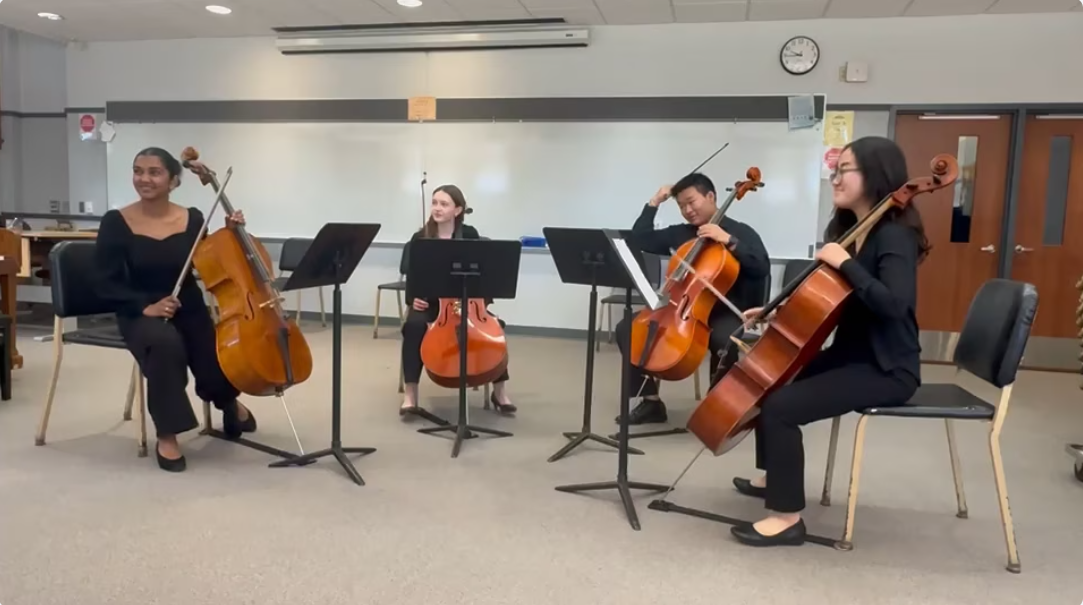The Hidden Effect of Psychology in Retrospect
During the pandemic, many people felt more nostalgic than ever. But a psychological effect may be making our memories fonder than they actually were.
March 24, 2023
During the pandemic, people across the world found themselves reminiscing about the “good times,” when family vacations to Disney World, school days with friends face-to-face and family gatherings to eat heaps of turkey during the holiday season were common.
The hopes and dreams of normalcy were out of reach for many until COVID-19 restrictions finally began to relax after vaccines started to be widely distributed.
According to many psychologists today, the recollection of events is influenced by a psychological effect which allows experiences to be remembered as more joyful than they actually were.
Nostalgia
These feelings of reminiscing the past, such as before the pandemic, can be one example of nostalgia, which, according to Chelsea Bishop of WebMD is “a sentimental yearning for the past that evokes feelings of pleasure with occasional notes of sadness.”
Despite its current usage, the word “nostalgia” held a vastly different meaning in the past. The idea originated more than 300 years ago when it was created to explain “the troubled emotional state of homesick mercenaries,” according to Bishop. In the New York Times article, “What Is Nostalgia Good For? Quite a Bit, Research Shows,” John Tierney finds that in the early 19th century, nostalgia was associated with depression, defined as a “neurological disease of essentially demonic cause.”
But after a survey conducted by sociologist Fred David in 1979, nostalgia was finally replaced by a new definition that is widely accepted today, separated from the idea that nostalgia was an emotional response to homesickness.
Although nostalgia is known to appear in distressed situations, such as the pandemic, it can occur in many different environments and instances.
Sara Schulz, a fine arts teacher at Middleton High School (MHS), said recalling fond memories of her childhood dog had an overall positive effect on her life.
“Because of those memories, I have gotten dogs my own… it’s made me a dog lover,” Schulz said.
For Michael Charlesworth, an MHS English teacher, reminiscing meant thinking about his college experiences at the University of Wisconsin-Madison as he walked from his house to the school for work.
“Walking to classes, thinking about what I just learned in the lecture, and seeing all the pretty buildings was always a nice experience [at UW-Madison], said Charlesworth. “Now, walking to school as a teacher and looking at suburban houses but still thinking about what I want to teach my kids brings me back to that [memory].”
These positive memories, sweetened by nostalgia, have many benefits for mental health. The University of Southampton states that “when engaging in nostalgic reflection, people report a stronger sense of belongingness, affiliation, or sociality, … describe their lives as more meaningful [and] often indicate higher levels of self-esteem and positive mood.”
A 2020 study conducted by researchers Taylor FioRito and Clay Routledge at North Dakota State University found that of 148 university students with depression, those who watched an announcement designed to trigger feelings of nostalgia showed more interest in contacting a campus counseling center to seek help.
Tierney explains that nostalgia has been shown to counteract loneliness, boredom, and anxiety.
In less serious settings, nostalgia can act as a connector to create and maintain social connections. Various studies highlight how sharing these types of nostalgic experiences with others, such as a common memory at a specific amusement park or eating a childhood favorite drink, can lead to “greater closeness among conversation partners than discussing nonself-related topics.”
However, nostalgia can induce sadness by reminding a person of a time that no longer exists.
David Newman, a postdoctoral scholar in the Department of Psychiatry and Behavioral Sciences at the University of California San Francisco School of Medicine elaborates that remembering the past can evoke feeling of longing by reminding a person of a time that no longer exists.
In addition, Deanna Woodhouse, the director of clinical operations at Evolve Treatment Centers, an adolescent mental health treatment center, has seen nostalgia’s harmful effects. “When we start to reminisce on the ‘good old days’ and begin to linger in the past, we can ruminate on the ‘what ifs’ and ‘should haves,’ which can lead to depression,” she said.
Rosy Retrospect
Have you ever experienced a time when others seem to remember a happy memory differently than you do?
Schulz says yes. Although she remembers only joyful times that she spent with her childhood dog, jogging and snuggling, she states that when she talked about the dog with her parents, they recalled how “challenging it was especially near the end of its life, just to maintain the lifestyle that they wanted for the dog.”
Terence Mitchell and Leigh Thompson of the Massachusetts Institue of Technology explain that these differences in memory come from a cognitive bias called “rosy retrospection,” which is a “tendency of people to remember and recollect events they experience more fondly and positively than they value to be at the time of their occurrence.”
When an experience is received by the brain, the person’s positive and negative feelings from that instance are encoded separately and utilize different parts of the brain that play a role in rosy retrospection.
First is the amygdala, which helps in storing particularly emotional memories, and second, the prefrontal cortex, which is involved in how we think about ourselves and our experiences.
Although it may seem that rosy retrospection is similar to nostalgia, it differs by when it occurs and its effects.
According to Itamar Shatz of Effectiviology, rosy retrospection occurs only when you have positive expectations before a specific event.
Rosy retrospect can create positively skewed illusions that increase the ability to care about others, to engage in productive and creative work and to be happy or content. On the other hand, it can also cause declinism which, according to Shatz, is when someone believes that “society as a whole is becoming worse and worse every day, even if by their own metrics the situation is actually improving.”
To mitigate the unfavorable effects of nostalgia and rosy retrospect, Shatz writes in his article about debiasing that people can make an effort to recall from an objective record, such as a diary, to examine past events rather than recalling experiences from memory that could be altered through rosy retrospection.
Although nostalgia and rosy retrospect may have negative effects on our lives, it is possible to reduce them, and it is important to understand how these two psychological effects can impact our future actions when reminiscing the memories both during and after the pandemic.














